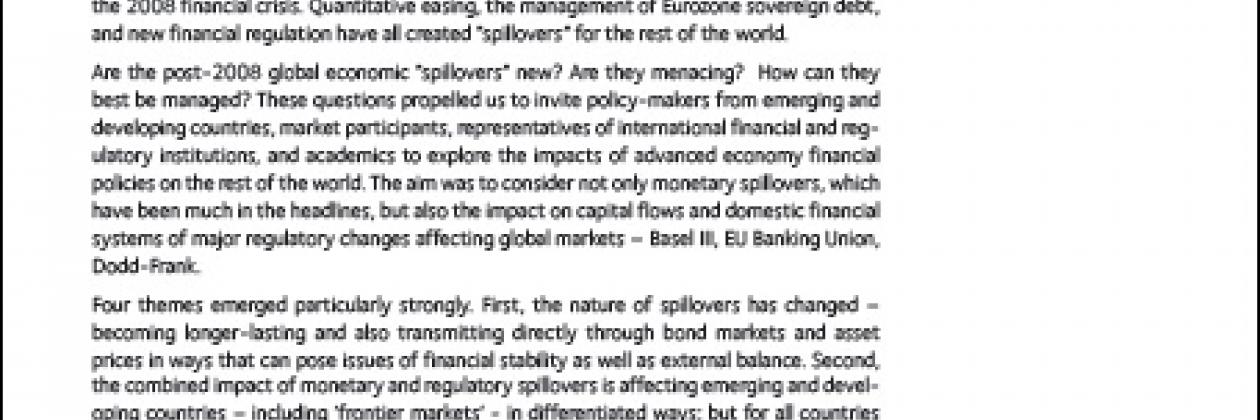Conference Report: Monetary and Regulatory Spillovers
Max Watson
Topics
Note: This report is the outcome of a day-long conference hosted by GEG and the Political Economy of Financial Markets Programme (PEFM) on 12 February, 2014.
Powerful economies in the world have been accused of creating havoc in the rest of the world economy as they seek to restore economic growth and stability in the aftermath of the 2008 financial crisis. Quantitative easing, the management of Eurozone sovereign debt, and new financial regulation have all created “spillovers” for the rest of the world.
Are the post-2008 global economic “spillovers” new? Are they menacing? How can they best be managed? These questions propelled us to invite policy-makers from emerging and developing countries, market participants, representatives of international financial and regulatory institutions, and academics to explore the impacts of advanced economy financial policies on the rest of the world. The aim was to consider not only monetary spillovers, which have been much in the headlines, but also the impact on capital flows and domestic financial systems of major regulatory changes affecting global markets – Basel III, EU Banking Union, Dodd-Frank.
This conference report presents an overview of the discussions in the workshop, and also brings together the short thought-pieces that several participants submitted prior to the meeting. It includes contributions from Taylor St John, Geoffrey Gertz and Max Watson (GEG/PEFM, Oxford); Tamim Bayoumi (IMF); Piroska Nagy (EBRD); Mthuli Ncube (AfDB); Alok Sheel (Government of India); David Lubin (Citi); Stephen Pickford (Chatham House); Gene Frieda (Moore Europe Capital Management); David Vines (Oxford); Louis Kasekende (Bank of Uganda); Kako Nubukpo (Government of Togo); Que-Giang Tran-Thi and Tu-Anh Vu-Thanh (GEG, Oxford); Xu Qiyuan (Chinese Academy of Social Sciences); David Wright (IOSCO); and Cyrus Ardalan (Barclays).





